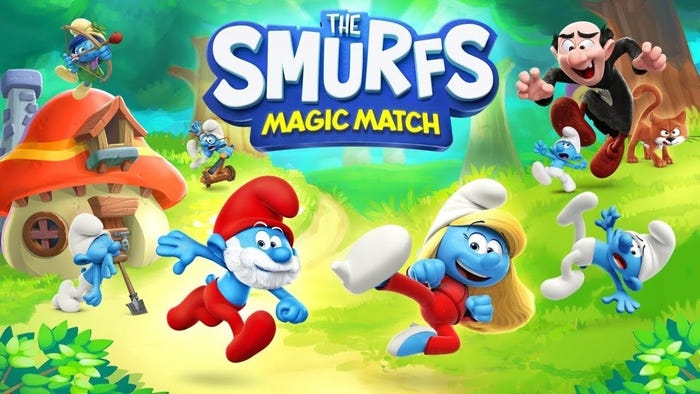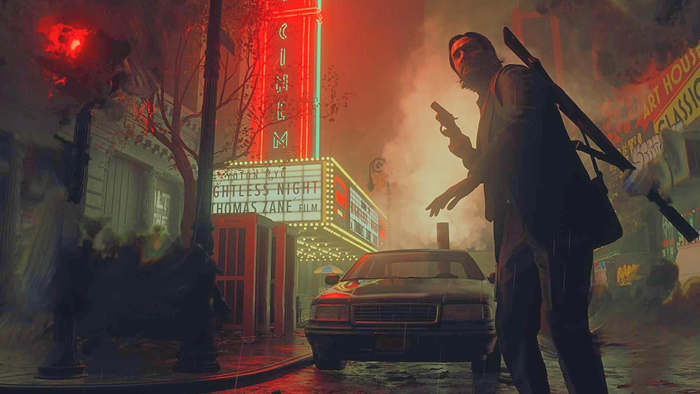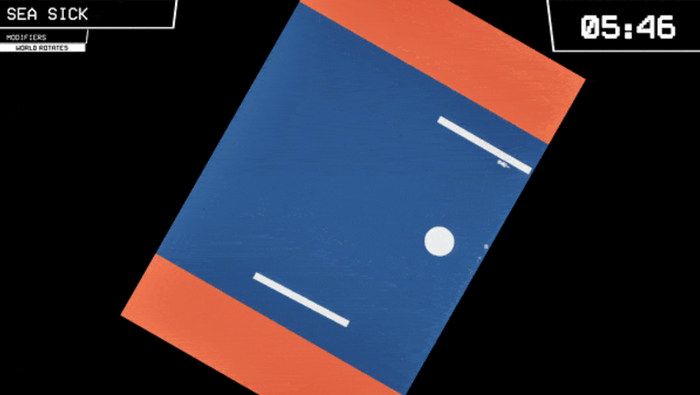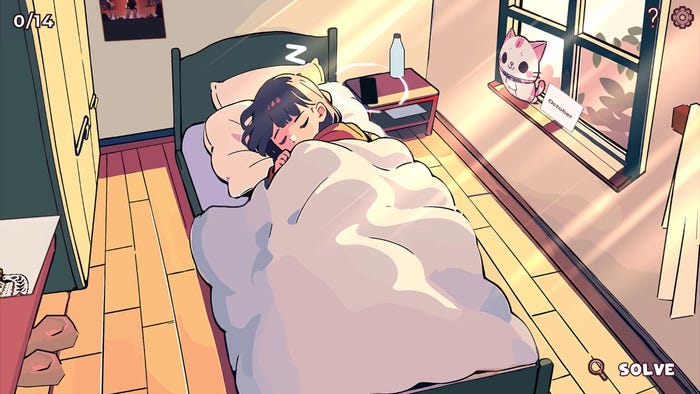Opinion: Game Industry Interviewing 101
Interviewing for a game industry position can be a nerve-wracking experience for both interviewer and interviewee, and in this opinion piece, Id Software's Aurelio Reis lays out a wealth of helpful tips to make the process run smoothly and effectively for

[Interviewing for a game industry position can be a nerve-wracking experience for both interviewer and interviewee, and in this opinion piece, Id Software's Aurelio Reis lays out a wealth of helpful tips to make the process run smoothly and effectively for everyone.] A few months back, I was doing a heavy amount of interviewing for basically two months non-stop. I spoke to over ten game companies, and flew out to on-site interviews a total of seven times -- there and back. It was a grueling and nerve-wracking experience, but I ended up learning a lot and finding a great job. Here are some things I learned that I hope can teach both interviewers and interviewees about the right and wrong way to interview. DISCLAIMER: I don't pretend to be an expert on the subject. These are merely my opinions on the experiences I've had on both sides of the table. Please take all this with a grain of salt. First, let's start with what both parties are looking for. From the interviewers' perspective, what they want is: - To determine the skill of the applicant, who should be at least capable, and ideally exceptional - To make sure the interviewee fits in well with the team - To pay as little as possible The interviewee's interests are a bit different. They want (ideally): - Good pay - Enjoyable and challenging work - Job security - Opportunity for growth and advancement Although both parties obviously want different things, they both have many places where they meet. For starters, both parties want a long-term relationship. It's beneficial for a company to keep its employees for a significant amount of time. The first year that an employee is on the job calls for a decent amount of training, and this is both costly in time and money for the employer. It takes an incredible amount of effort to find, interview, and sign an employee -- and then pay for relocation and benefits on top of salary. Every engineer or artist you take off the job to interview a prospective employee means development time lost. Because of these factors. it's critical to hire employees that will stay with you for the long haul. Both parties also want to put out top-quality titles. If you, as an employee of that company, can't get an interviewee excited about what you're working on, it's unlikely he'll be excited working on it there as well. It's even less likely he'll accept an offer if he has better prospects elsewhere. As an interviewee, the entire process is extremely stressful, but the most important thing to do is not alienate your interviewer. An easy way to do this would be to: - Bad-mouth previous employers or co-workers - Point out mistakes you've made without addressing ways in which you've resolved or learned from them - Show lack of knowledge of their company or their games - Not be prepared, technically or personally In the end, it's about finding a candidate that impresses the interviewer in some way or another. So, how can a candidate impress their interviewer? Well, there are a few easy ways: - Show knowledge about the company - Sell yourself, your ability to work with others well, and your skills - Be early to the interview - Show manners and be polite - Maintain a positive attitude, no matter what - Embrace game industry culture -- no suits! -- but take the interview seriously - Thoroughly thank the interviewer for their time -- they're taking a chance on you! The same goes for the interviewer. Interviewers need to realize that they are being interviewed as well. The candidate has a choice to work somewhere else, so it's important to show respect for the candidate and treat them as an important individual. A great way to put a bad taste in their mouth is to: - Show lack of knowledge of their skills by not giving their resume full attention - Not giving them time to answer questions, answering questions for them (in large groups) or asking questions not relevant to their day-to-day job (brain teasers are Satan!) Having said that, an interviewer is still expected to do all they can to find qualified candidates. Some candidates are knowingly unqualified for the job, but apply anyway. This does a disservice to all, and these interviewees should never have gotten to the on-site interview if the interviewer was doing their job right. Interviewing for a job is not shooting in the dark, and most employers know better. Despite this, realize that some candidates can have a bad day. There are no such things as re-dos for an interview, but it doesn't hurt to be understanding. The worst thing a company can do, in my opinion, is end an on-site interview early. It's not like you just hung up on the employee on the phone -- no harm, no foul. This person just made an effort to get out to your company, taking time away from their job, family and life. This is humiliating to the candidate, and shows a complete lack of professionalism on the part of the company. I've personally seen this happen before, and couldn't have been more disgusted. So what are the different types of interviews? - The Gauntlet. In this type of interview, the company throws interviewer after interviewer at the prospective employee, sometimes in pairs, for 30 minutes to an hour at a time. The idea is to expose the candidate to as many people on the team as possible, and later discuss as a group the merits of that individual. This is probably my personal favorite (as the interviewer and interviewee), as it gives you the most insight into the candidate, although it can be quite fatiguing. - The Interrogation: Throw everyone and the kitchen sink at the guy all at once. See how you do under immense pressure. "Oh no, he's going to burst!" In my opinion, this kind of interview is a circus. It always leads to interviewers talking over each other and the candidate, leaving him in the cross-fire -- very uncomfortable. Also, most game developers tend to be more introverted personality types, so exposing them to a room full of people is just cruel. - The Pow-Wow: This is the laid back, conversational style interview. I like this style a lot, but you have room to miss a lot about the candidate. I would only use this if I knew they were perfectly qualified and just wanted to get a feel for their personality. An experienced interviewer is great at sneaking in very in-depth questions in the guise of just shooting the breeze. It's a great way to get to know a candidate while having them lower their guard a bit. The main purpose of these different types of interviews is the same, but how they get there is obviously very different. No matter what kind of interviewing style is used, there should be a few questions that are always asked both for the interviewer and interviewee. For the interviewer: - "Why should we hire you?" - This may seem condescending, but in actuality it's a valid question that any competent candidate should be able to answer easily. - "What, in addition to your qualifications, do you bring to the table?" For instance, it's important that a programmer show some form of creativity, and an artist a thirst for technical knowledge (or at least not an aversion). - Never, ever ask yes or no questions. This leaves conversations open-ended, and keeps the interviewer talking. And for the interviewee: - "Why should I want to work here?" This is the most important question you could ask yourself. - "What exactly would my responsibilities be?" - Make sure you know what you'll be doing (and watch out for the switcheroo). - "How do you encourage employees' personal and career growth?" Not only does this question impress employers, it's vital to the success of your career. Both interviewer and candidate need to watch out for what I call "impostors" -- which can be both the company and the person interviewing. You'll know a company that's an impostor when they paint such a rosy picture that there's no way they could live up to that expectation. These companies are often desperate for employees (due to high turnover or other factors) and are often not honest about work conditions, which are often very poor. Candidates who aren't capable but pretend to be (or are still aspiring to be) fit in the same category. Remember what I said about the interviewer being interviewed by the candidate? If you treat an interviewee poorly in an interview, it's easy for them to believe that's how they'll be treated there. Here are some ways to impress the interviewee: - Give them a studio tour. - Show them your game!!!! Can't emphasize this enough. Too many companies seem afraid to show their game. Better to have a poor impression than no impression. Your fancy idea won't be stolen, and if it is, why should you worry? You are the only one that knows how to pull it off, right? - Take them out to a nice lunch with people who have shown an obvious enthusiasm for the company. Stop the interview for lunch; this is a chance to see the interviewee's personality, not his knowledge of calculus. The last thing to mention is actually one of the first things to happen: the phone interview. As the interviewer, there are a few guidelines that should be followed: - Never have more than two people in the same room. - Don't use interviewers with strong accents. - Read the candidate's resume before the interview. - Keep it under 30 minutes unless it's going extremely well. Still, be aware how much time you're taking, and offer to extend the interview for a later time. As an interviewee, it's likely you'll be very nervous during your first conversation with the company, so keep these things in mind: - Find a nice, quiet place. - Don't pace. - Use a land line if at all possible! This avoids drop outs, phone delay and bad reception. - Have a notepad in front of you where you jot down notes and questions to ask. - Never, ever interrupt the interviewer (can be hard to avoid with phone delay). This kind of goes with the previous suggestion (write down your questions as they come to you). The process shouldn't be grueling -- it should be fun and rewarding for both parties. I hope you take these tips to heart and keep them in mind during your next interview. Though these tips are geared towards the game industry, proper interviewing etiquette works well in any field. [Aurelio Reis has been programming and designing games professionally for over 6 years. He's contributed to numerous AAA titles for some of the biggest names in gaming. Right now he's using his dark arts to summon forth demons as a programmer at id Software.]
About the Author(s)
You May Also Like









